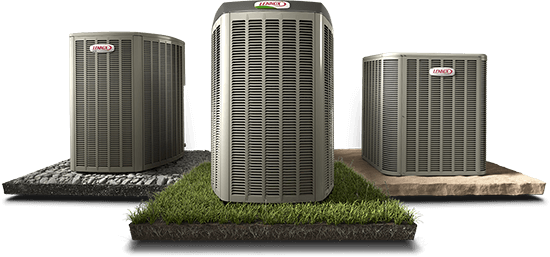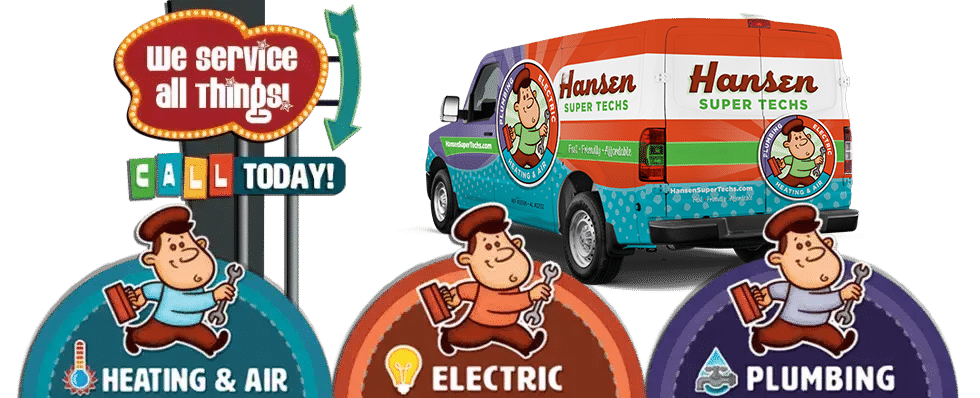What Type of AC System Is Best for Your Home?

Most homeowners think there is only one type of AC on the market or that any type of AC will work just as great as the next one. But you’ll soon realize that AC units are designed differently and that picking the wrong one can lead to installation and maintenance problems and, more importantly, high energy consumption and utility bills.
To help you figure out the right type of AC system to install in your Alabama home, here are the seven types of AC units available on the market and their respective pros and cons.
Ducted System
Also more commonly known as a central air conditioning unit, ducted systems are ideal for large households with multiple rooms that you want to be cooled. A central AC unit is installed with a split system that controls airflow through ducts installed around your home. The “split” element of a ducted system implies that the system is comprised of two primary components: an external component that sits outside your home and an internal one. You can also call these two components the evaporator(internal) unit and condenser(external) unit.
While ducted systems are indeed capable of cooling larger spaces, it also tends to consume a significant amount of energy. Ultimately, it leads to costlier monthly electricity costs. Fortunately, most modern central AC units are installed with a programmable thermostat, which lets you control temperatures for a more cost-efficient cooling operation.
Ductless System
Also termed as mini-splits, ductless air conditioning systems tend to be a more energy-efficient option for indoor climate regulation purposes. A ductless air conditioner also takes less time to install and maintain since it eliminates the need for ductwork. Similar to a ducted system, a ductless AC will also be comprised of an external and internal unit. The difference is that ductless systems may come with one or more internal handling units, depending on how many rooms you need to cool. The internal units are mounted on a wall and armed with air blowers.
One area where ductless systems can potentially lack is their cooling capacity. A single ductless unit is not sufficient to cool a large household. Another possible drawback is its cosmetic footprint. Since internal units are wall-mounted, they will be visible to anyone who walks into the room, including guests.
Window-Mounted System
Window-mounted air conditioners are a strong candidate if you’re looking for a versatile and cost-effective solution for cooling single or smaller spaces. Window AC units are designed in a variety of sizes, so there are plenty of options on the market that will fit your specific window specifications. Larger window AC units can also cool large open spaces or a single-story home. A window AC unit will have all of its parts packaged inside it. There are no separate components to install or maintain, such as in the case of a ductless or ducted system.
A window AC unit can be appealing to homeowners who want an easy-to-install unit and/or one that doesn’t take up any floor space. Window units are also usually cheaper to operate. Note that some window AC units, however, can be loud while operating. Moreover, some windows are not designed to support air conditioners.
Portable System
A portable air conditioning unit works the same way as a window air conditioner. All of its components are encased in a single box, yet the key difference is that portable systems come as a free-standing unit with wheels so you can move there around. All a portable system needs is access to a power outlet and an open window where it can expel out the heat. Portable systems tend to be a less expensive way of cooling your home and are also a good solution for temporary cooling needs. For instance, if you are intending to only live in an apartment for a few months, ducted or ductless systems are probably not worth the trouble of buying and setting up.
But because of their relatively compact size and less powerful components, you may be disappointed with a portable air conditioner’s lackluster performance. Its cooling ability is only meant for smaller or single rooms.
Floor-Mounted System
A floor-mounted system, as the name implies, sits on your floorboard and is a good compromise for homeowners who want a mini-split style unit but do not have the wall space to mount it on. The internal unit of a floor-mounted system lies on the floor while the external unit is installed without the need for any major modifications to the site. There is also no need for any ductwork when using a floor-mounted system, making it an ideal system for confined spaces, such as attics. Because the unit is installed at floor level, you can easily assess the condition of the air filters for effortless maintenance.
One thing to be mindful of when using a floor-mounted system is airflow obstruction. It is important not to block the internal unit with furniture or other appliances. It’s also not as effective at distributing airflow evenly, making it a less suitable fit for large spaces.
Geothermal System
Geothermal systems are capable of cooling and heating your home. The technology uses the insulating properties of the ground and the relatively consistent temperatures of the earth all year round. Because it relies heavily on geothermal energy, this type of HVAC system tends to be more energy efficient over the long run.
Because it is a relatively nascent technology, geothermal HVAC system installations are usually more expensive and require extensive planning and preparation beforehand. Because there is drilling involved in order to layout the piping, location will also play a role in assessing whether or not you are able to pursue this type of HVAC system.
Smart System
Smart systems are any type of AC mentioned above that are connected to your home’s network. Smart systems are IoT enabled, so you can control temperature settings and cycle times directly and remotely from your smartphone. Smart AC units have different features, depending on whichever brand you choose. Some common features include temperature control and geofencing.
Cost is perhaps one of the main barriers to choosing a smart AC system. However, the upfront costs of a smart system can be offset by the energy savings you get throughout the system’s lifespan. Lastly, it also requires a stable network connection otherwise you may lose the smart functionality that the unit comes with.
The type of AC system that best fits your home will depend on several key factors that any consumer must take into consideration. This includes system cost, energy consumption, location, structural limitation, and upkeep requirements.
Simplify the process of shopping for a new AC system for your home by consulting one of our experienced HVAC technicians. We at Hansen Super Techs have been serving cities in Alabama for years now and have built a reputable and trustworthy brand in the HVAC market. Give Hansen Super Techs a call today to learn more about our services!

